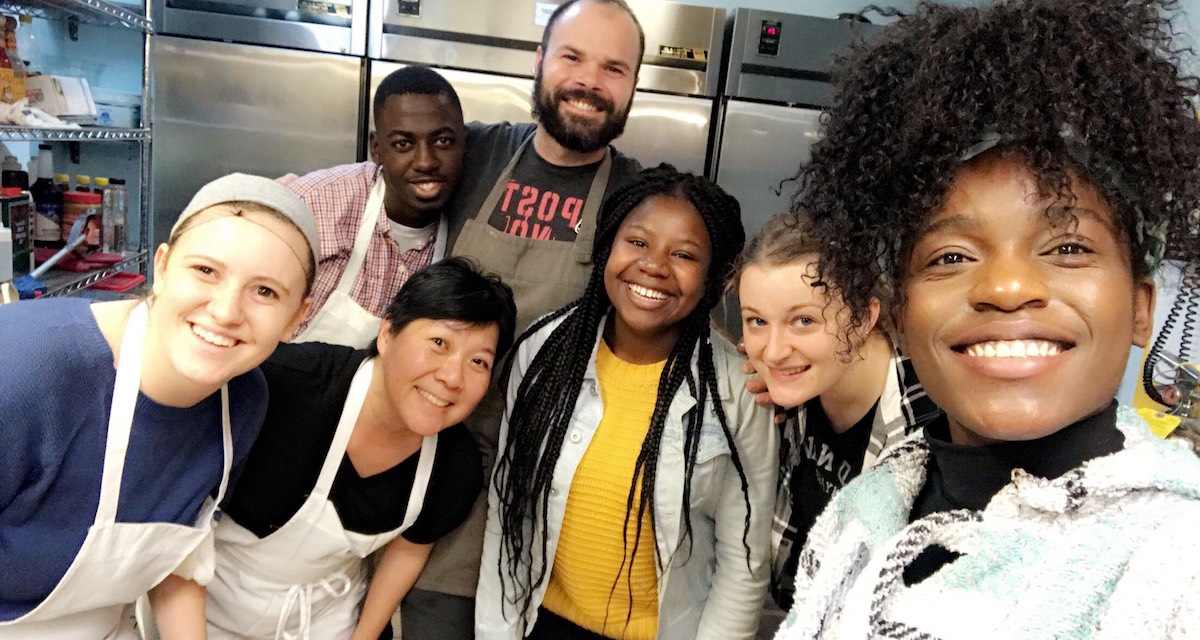Two Clarendon Scholars Travel to Chicago for Urban Intensive
This past January, Wislene Augustin ’19 and Shineika Fareus ’21—two Gordon students and Clarendon scholars—traveled to Chicago for the Urban Intensive Program, a week-long program that educates college students about the social justice issues faced by urban communities in the U.S.
At the start of Urban Intensive, Augustin (Christian ministries and psychology) and Fareus (political science) toured several neighborhoods in Chicago’s West Side. They were led through an intimate street-level view of the political, educational and personal hurdles experienced by the low-income citizens living there.
Fareus and Augustin saw firsthand how under-resourced Chicago’s educational system is, they say. Over the years, the Chicago Public School System has had to close dozens of its elementary schools due to a severe lack of funding, leaving a large number of youth without affordable education options and creating a situation that Augustin described as “a school-to-prison pipeline.”
They also learned about the issues related to Cook County Juvenile Temporary Detention Center, which is not only the largest juvenile center in the country, but also holds more than twice as many occupants as it was originally designed to.
What brought Fareus and Augustin hope, however, was seeing how Lawndale Community Church provided for the citizens of West Chicago in a localized and intentional way. Recognizing that there was more they could do for their community, the church became a haven for low-income families in the area, offering them affordable housing, legal services, education and job readiness training programs, and a health center.
“Once the church gets involved, there is so much that can change,” Fareus said, reflecting on how moved she was by Lawndale Community Church’s outreach.
In reflecting on the work they did with Urban Intensive, Augustin and Fareus cited an experience with the Inspiration Café as being the most influential. The cafe has a special focus on being a refuge from the streets and openly welcomes the homeless and impoverished to take a seat at their tables and be waited on by volunteers––like Augustin and Fareus––who want to create a one-on-one connection.
“We helped them remember that their dignity is still intact. That their humanity matters,” Fareus says. “It’s not just about serving people, it’s about working together to better everyone.”
When the six-day program came to its conclusion, Augustin and Fareus were both overwhelmed and energized. After taking some time to process her experience, Fareus said that she went right back into the action, and took what she had learned from the Urban Intensive Program to begin reaching out to her local government.
Augustin expressed a similar sense of agency upon returning home, and explained how she gained a newfound realization that “sometimes it’s not going to be easy,” and found herself asking the same kinds of questions Fareus was also facing in regards to her passion for social outreach: “How do I practically do this? Where do I go with this?”
Ultimately, this experience left Augustin with a desire “to keep enduring, to keep pushing for what I’m fighting for because I believe in it, because it’s important, and I don’t want to give up on that.”
Article by Billy Jepma ’18, English language and literature, communication arts
 The Bell
The Bell